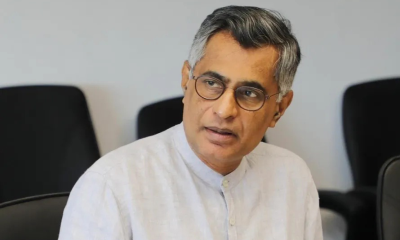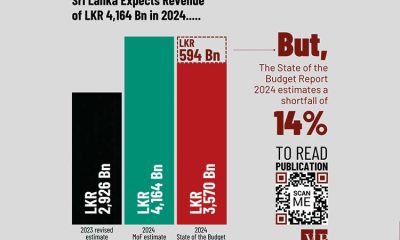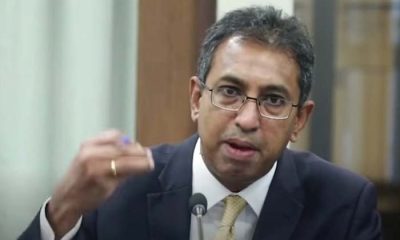Business
Authorized mobile importers urge SL govt. to reconsider VAT hike

A group of authorized mobile phone importers in Sri Lanka express deep concern over the Sri Lankan government’s decision to remove mobile phones from the Value Added Tax (VAT) exemptions list, coupled with a simultaneous increase in VAT from 15% to 18%, effective January 1st, 2024. This dual impact, wherein devices now not only face a sudden VAT imposition, but also at a significant rate of 18%, pose substantial challenges for the industry and the country. The importers urgently call for a critical reassessment by the authorities in light of these compounded challenges.
A press release said in this regard: ‘The timing of the VAT hike is particularly challenging for authorized mobile phone importers in the country. These companies have collaborated with the Telecommunications Regulatory Commission of Sri Lanka (TRCSL) to find viable solutions to the challenges of parallel imports. Parallel imports, or grey market goods, involve the import and sale of branded products in a market without the trademark owner’s consent. This issue has already caused a tax revenue loss of LKR 3.1 billion (USD 9.4 million) and a Forex outflow of LKR 31.6 billion (USD 96 million) via illegal channels in Sri Lanka.
‘With the sudden VAT increase, this loss is estimated to rise to 11.9 billion LKR, marking a substantial increase in tax revenue loss from illegal imports. Additionally, there is a projected further tax revenue loss to the government, amounting to a LKR 2.5 billion decline from legitimate imports. This decline is anticipated due to increased parallel import products driven by the rising prices of genuine products.
‘Moreover, the ramifications extend beyond the economic landscape. Over 10,000 direct job opportunities are now at risk, leaving families dependent on the industry—more than 15,000, including those involved in logistics, printing, branding, advertising, etc.—facing uncertainty. The policy change also jeopardizes direct Forex investment for market development by principals (ATL/BTL), putting this crucial financial support at risk. Furthermore, the spectre of a national security threat looms as parallel imports introduces unknown devices to the country, creating challenges in tracking these products.
‘Authorized mobile importers emphasize the unfortunate timing of removing cellular and electronic devices from the VAT-exempted list and the hike in VAT given the ongoing efforts by legal importers to find solutions for the persistent Parallel Imports (PI) issue.
‘Accordingly, the industry had put forward practical suggestions and is actively engaged in collaboration with the TRCSL to explore viable solutions which include proposing an option for registering already in-use PI devices at a nominal fee, introducing a Tourist SIM for the duration of the incoming visitor’s VISA period, and implementing whitelisting of non-registered IMEI from mobile networks. These initiatives aim to holistically address the challenges posed by parallel imports, foster regulatory compliance, and contribute to the development of effective policies that strike a balance between industry interests and regulatory requirements. However, the sudden imposition of VAT, and at an alarmingly high percentage while the industry was working with the TRCSL, is deeply concerning. Similar situations have been observed in countries like Pakistan and Nepal.
‘The absence of effective measures to restrict parallel imports before imposing taxes impacts legitimate imports and results in a substantial loss in government revenue. Authorized mobile importers stress the critical necessity for the government of Sri Lanka to prioritize and implement a viable solution for the parallel import problem before imposing additional taxes on the industry. This approach is urgent and essential to safeguard the industry’s interests and the government’s fiscal well-being.
‘On December 1st 2023, a meeting was convened involving the TRCSL, leading mobile brands and authorized importers. The assembly of mobile importers present included, Thushara Ratnaweera and Chaminda Silva representing Samsung, alongside Rajeev Gooneratne and Charles Wijesuriya from Gnext, Prasanna Weerakoon of JKOA, Chathura Jayawardena and Sha Bulathsinhala from Abans, and Gurubaran and Sanketh Gihan representing Vivo.’
Business
Lanka’s largest solar park set to transform energy landscape and local economy in Hambantota
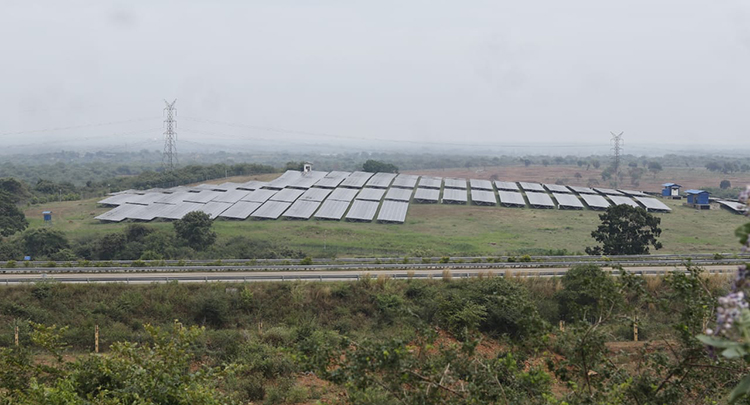
A new era in Sri Lanka’s renewable energy is unfolding in the Gonnoruwa Division of Hambantota District, where construction has begun on the country’s largest solar power park. Spanning 450 acres and designed to generate 150 megawatts (MW) of electricity, the US$150 million private-sector-led project is poised to become a cornerstone of the nation’s sustainable energy ambitions.
Officials say the solar park, guided by the Sustainable Energy Authority and the Mahaweli Authority, will make its first contribution to the national grid by the end of this year, with full capacity expected by 2026. Once completed, the facility will rank among Sri Lanka’s largest renewable energy installations, second only to the 210 MW Victoria Dam and the 150 MW Upper Kotmale hydropower project.
The initiative is being framed as a strategic response to recurring power cuts in the Southern Province during annual drought periods. With a projected 20% contribution to the country’s daytime electricity demand, the solar park is expected to significantly stabilize the grid, reduce reliance on fossil fuels, and contribute to the country’s renewable energy targets.
Project Engineer Thilanka Bandara confirmed that preliminary land preparation and boundary works have been completed, with 50 MW already feeding into the national grid. The investment, fully funded through foreign direct investment, local bank loans, and equity capital, requires no government funding. Two private firms are sharing the development, contributing 70 MW and 80 MW respectively.
Bandara highlighted a unique feature of the project: the transmission infrastructure, estimated at US$16 million, is entirely financed by the investors, marking a departure from conventional grid-connected projects. The park will also employ state-of-the-art ground-mounted solar technology, considered the most advanced currently deployed in Sri Lanka.
In a first for Sri Lanka, the solar panels will be installed five feet above the ground, allowing partial-shade crops to be cultivated underneath. Technical Officer Sithmina Bandara explained that this setup will enable the cultivation of food plants such as mushrooms, which thrive in shaded conditions, creating a model for integrated solar-agriculture systems. Agricultural experts have already provided guidance on implementing this initiative, which combines energy production with local food security.
The project is expected to generate 750 to 1,000 direct and indirect jobs, with 400–500 already employed in the initial phase. Long-term maintenance work will provide further employment opportunities, offering a substantial economic boost to the Hambantota region. Environmental management measures are also in place to prevent elephants from entering nearby villages, ensuring harmony between development and wildlife.
All necessary approvals and permits were obtained by February 2025, aligning the project with the Ceylon Electricity Board’s national generation plan. Officials confirmed that upon completion, the total output of the Solar Energy Park will rise to 200 MW, combining existing installations with the new 150 MW facility.
Experts say the Hambantota solar park represents more than just a power generation project. Its innovative design, private-sector financing, and integrated agricultural approach position it as a template for future renewable energy projects in Sri Lanka, reflecting a new model of sustainable development that balances energy, economy, and environment.
By Sirimanta Ratnasekera
Business
ESU Kandy clinches dominant victory at ‘Battle of Esoftians’
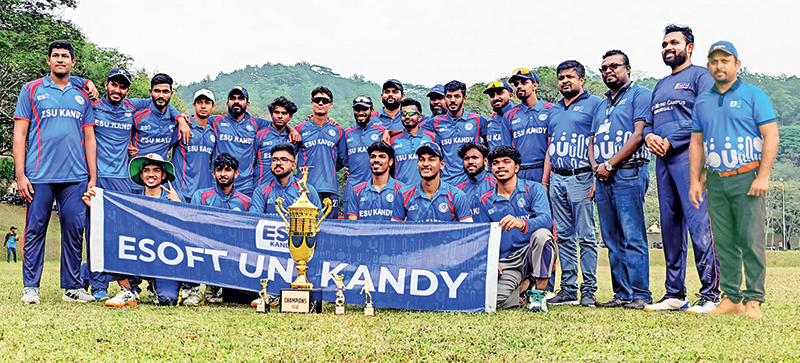
The Battle of Esoftians, an annual cricket encounter organized by ESOFT Uni Kandy, concluded with a spectacular display of cricketing prowess as the Kandy team secured a massive 245-run victory over ESOFT Metro Campus, Kurunegala. The match was held on the 15th at the University of Peradeniya Grounds.
Winning the toss and electing to bat first, the ESOFT Uni Kandy batsmen dominated the field from the outset. They showcased an explosive batting performance, posting a formidable total of 280 runs for the loss of 5 wickets in their allotted 20 overs.
In response, the Kurunegala ESOFT Metro team struggled against a disciplined bowling attack. The Kandy bowlers dismantled the opposition’s batting lineup, bowling them all out for a mere 35 runs, sealing a historic win for the Kandy campus.
The event was graced by the presence of key officials from the ESOFT management: Amila Bandara – Chief Operating Officer (ESOFT Uni), Dimuthu Thammitage – General Manager (Central Region), Lakpriya Weerasinghe – Deputy General Manager, ?Lahiru Diyalagoda
Centre Manager-Degree Division, ESOFT Metro Campus Kurunegala and Dushantha Sandaruwan – Master in Charge (ESU Kandy Cricket Club)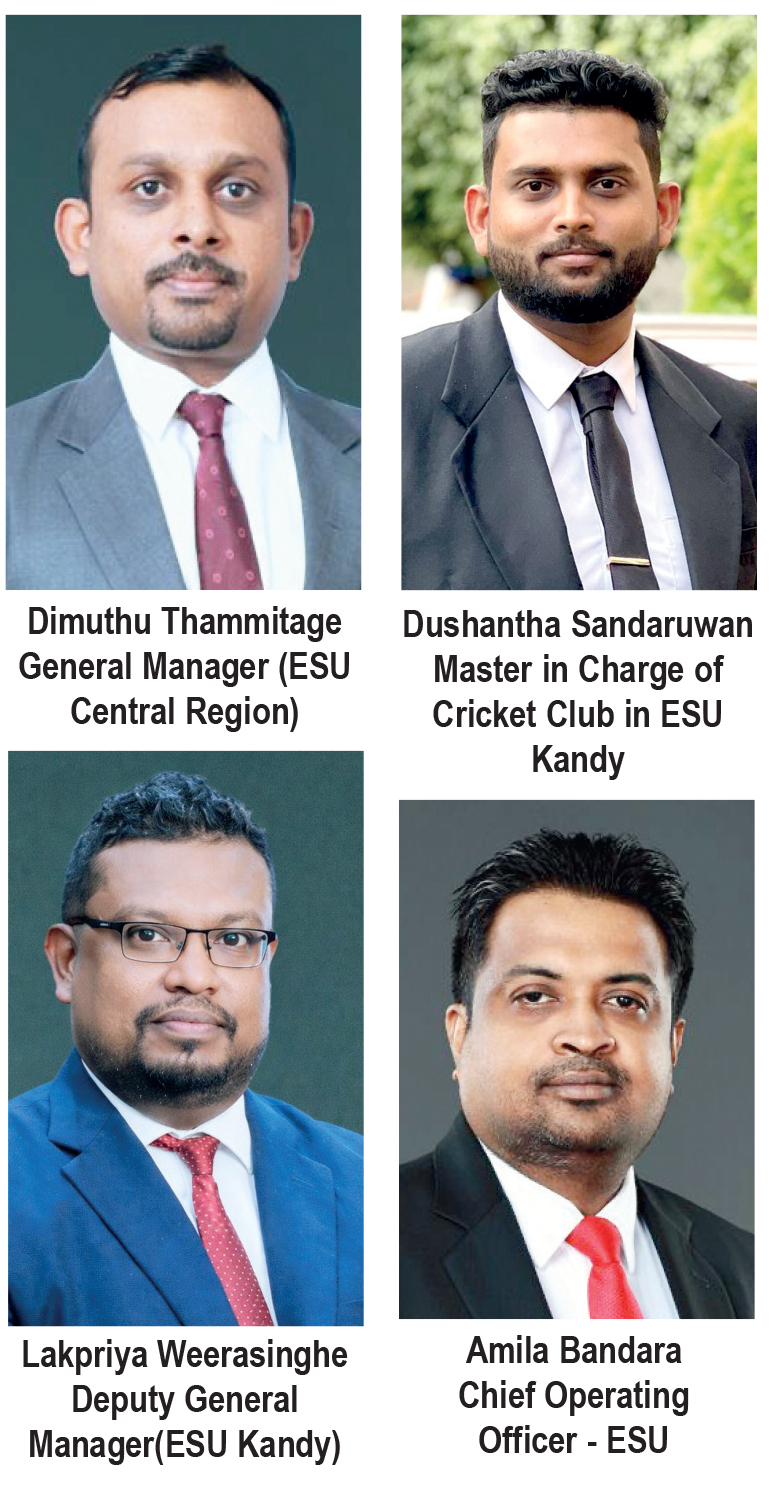
Team Lineups
ESOFT Uni Kandy (Winners)
Chamath Ekanayake (Captain), Dinuka Tennakoon (Vice Captain), Dushantha Sandaruwan (MIC), Chalitha Rathnayake, Pulasthi Bandara, Isuru Dehigama, Kesara Nuragoda, Aadhil Sherif, Isuru Pannala, Achintha Medawatta, Ahamed Shukri, Gowtham Hari Dharshan, Danushka Sahan, Eranda Bandara, and Damith Dissanayake.
ESOFT Metro Campus Kurunegala (Runners-up)
Adeesha Samarasekara, Savishan Madusha, Lahiru Diyalagoda, Hirun Damayantha, Naveen Madushanka, Daham Pothuwewa, Senuda Thewnaka, M.R. Abdulla, Arunodya Dasun, Mohamad Afri, Desith Perera, Lasitha Ranawaka, Anton Dilon, Shenuka Thirantha, and Kavindu Bandara.
Text and Pix By S.K. Samaranayake
Business
HNB joins Royal–Thomian “Battle of the Blues” as official banking partner

HNB PLC, Sri Lanka’s leading private sector bank, has joined as the Official Banking Partner for the 147th edition of the historic “Battle of the Blues,” the Royal–Thomian cricket encounter between Royal College, Colombo, and S. Thomas’ College, Mt. Lavinia. Commenting on the partnership, HNB’s Managing Director/CEO Damith Pallewatte highlighted the bank’s long-standing connection with cricket, including sponsorship of Sri Lanka’s first Test match against England in 1982, and emphasized HNB’s commitment to nurturing young talent and promoting school cricket. The three-day clash for the Rt. Hon. D. S. Senanayake Memorial Shield will take place from March 12–14 at the SSC Grounds, with the Mustangs Trophy one-day match following on March 28 under lights. HNB’s inaugural involvement marks a milestone in the bank’s sports marketing journey, strengthening its role in the school cricket ecosystem. The bank will enhance the spectator experience by introducing digital and cashless banking solutions, modernizing the event while preserving its rich heritage and sporting tradition.
-

 Features23 hours ago
Features23 hours agoWhy does the state threaten Its people with yet another anti-terror law?
-

 Business7 days ago
Business7 days agoMinistry of Brands to launch Sri Lanka’s first off-price retail destination
-

 Features23 hours ago
Features23 hours agoVictor Melder turns 90: Railwayman and bibliophile extraordinary
-

 Features23 hours ago
Features23 hours agoReconciliation, Mood of the Nation and the NPP Government
-

 Latest News2 days ago
Latest News2 days agoNew Zealand meet familiar opponents Pakistan at spin-friendly Premadasa
-

 Features23 hours ago
Features23 hours agoVictor, the Friend of the Foreign Press
-

 Latest News2 days ago
Latest News2 days agoTariffs ruling is major blow to Trump’s second-term agenda
-

 Latest News2 days ago
Latest News2 days agoECB push back at Pakistan ‘shadow-ban’ reports ahead of Hundred auction


